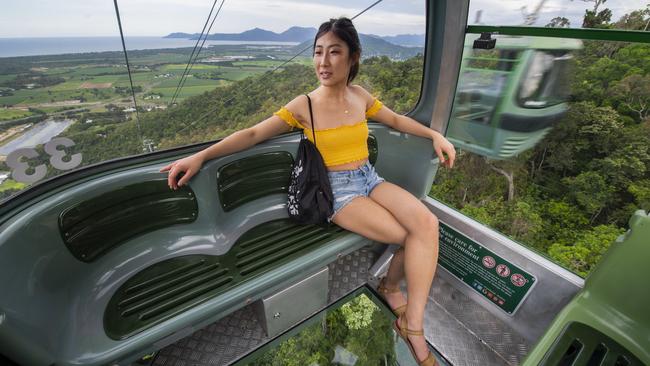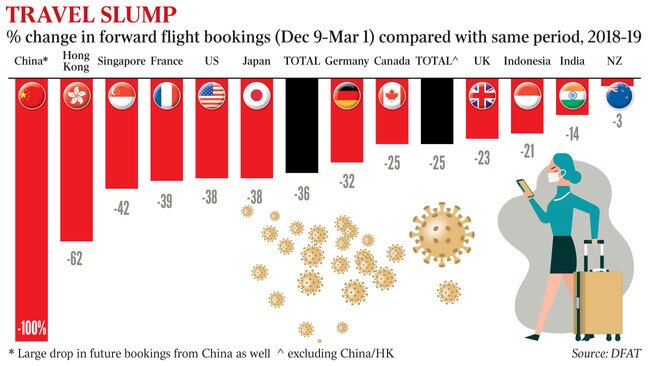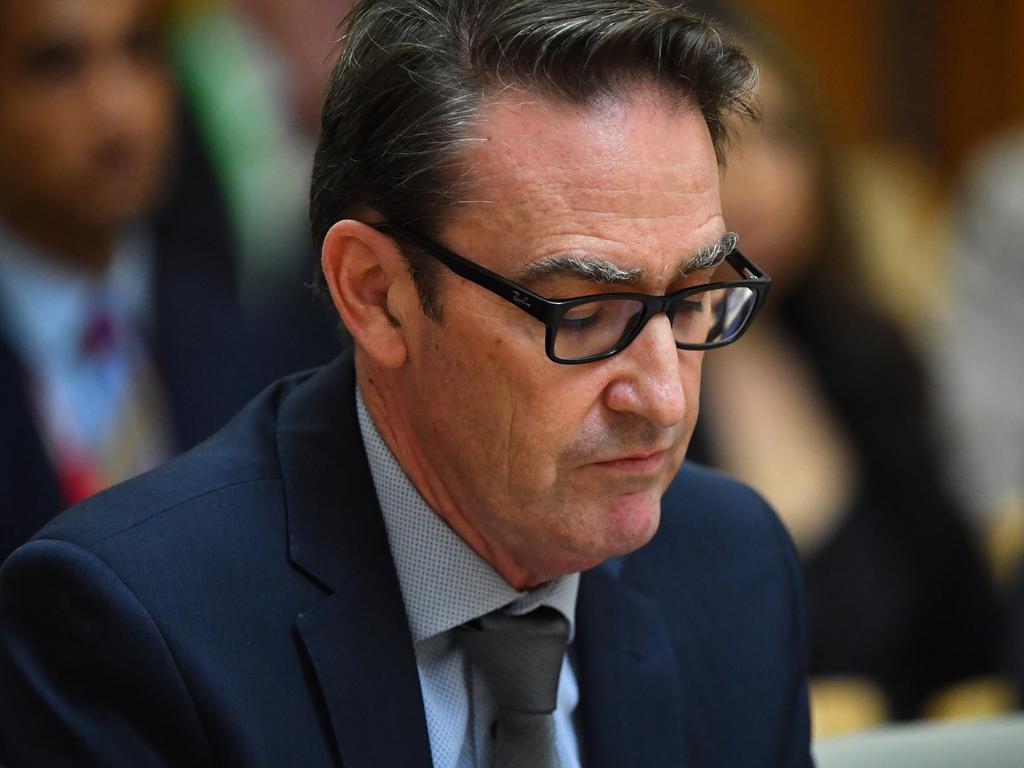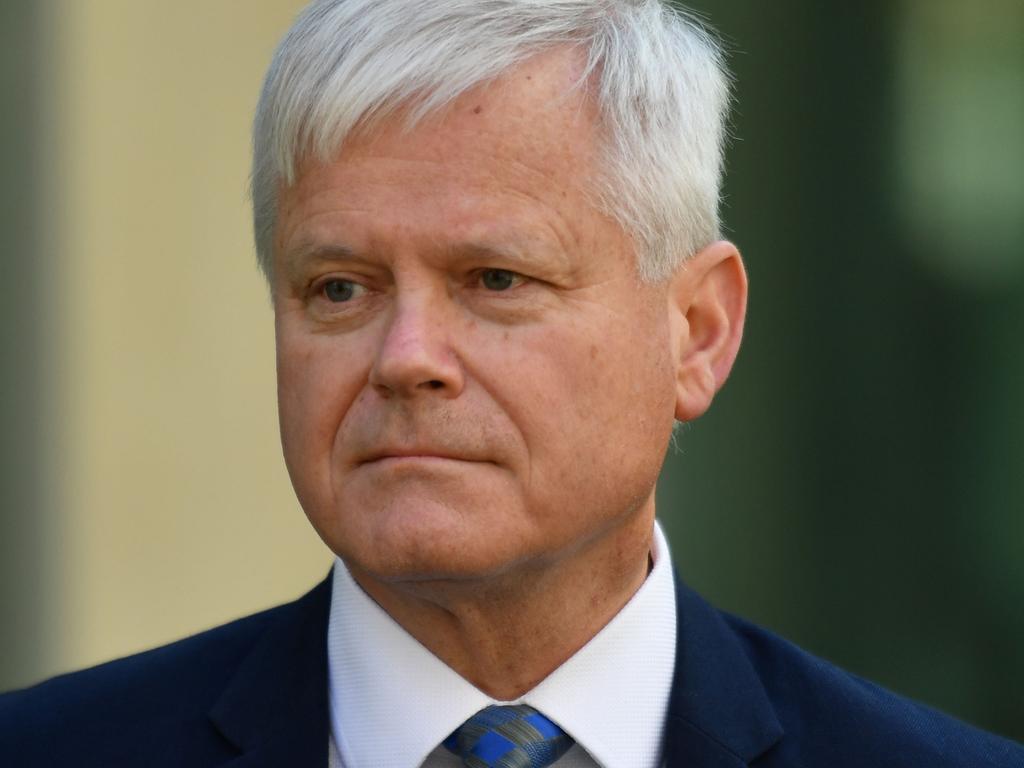Coronavirus: exodus leaves tourism high and dry
Australia faces an ‘unprecedented’ fall in tourists as the virus outbreak feeds a record number of holiday cancellations.

Australia faces an “unprecedented” fall in international visitor arrivals from key countries as the coronavirus outbreak feeds a record number of holiday cancellations and a 36 per cent fall in bookings since December.
Tourism Australia data reveals COVID-19 has fuelled a wipe-out in international airline bookings from key tourism markets, including China, Britain, Canada, the US, India, Japan and Singapore.
The travel ban on China, Australia’s biggest tourism market with about 1.4 million international visitors each year, has triggered a paralysis in bookings and a flood of forward cancellations from Chinese tourists.
Treasury secretary Steven Kennedy on Thursday said the combined impact of the coronavirus outbreak and black summer bushfires had reduced economic growth by 0.7 percentage points since the December quarter.
Dr Kennedy, who is advising Scott Morrison and Josh Frydenberg on a raft of stimulus measures to support at-risk industries, including tourism, flagged a fall in growth of “at least” 0.5 per cent in the wake of the widening coronavirus crisis.
Tourism Minister Simon Birmingham will meet state and territory counterparts in Canberra on Friday to discuss the immediate and longer-term stimulus measures in response to the coronavirus and the bushfires.
The Australian can reveal that the Morrison government — ahead of unveiling a targeted support package for the tourism industry — has committed to increase funding from $12m to $16m this financial year supporting Tourism Australia’s domestic campaign, Holiday Here This Year.
Between February 24 and March 1, year-on-year, bookings were down 47 per cent from Britain, 52 per cent from the US, 71 per cent from Indonesia, 32 per cent from India and 100 per cent from China and Japan, along with widespread cancellations of future bookings.
Analysis of international airline bookings between December and March showed signs of recovery following the bushfire disaster from key Western markets, which were reversed as the coronavirus spread across the globe.

Travel bans on foreign nationals travelling to Australia from China and Iran were extended by the national security committee of cabinet on Thursday morning.
South Korea was added to the travel ban list after the government initially baulked at slapping restrictions on one of Australia’s major trading partners.
Following the NSC meeting, Dr Murphy, who will brief tourism ministers on the health crisis, said he was preparing a range of scenarios, including one where millions of Australians were infected by coronavirus over a period of several weeks.
Senator Birmingham said the impact of coronavirus on international bookings was far greater than the bushfires and would “last for even longer”.
“These are unprecedented times for Australia’s tourism industry, with both the depth and likely duration of the downturn more severe than anything previously confronted in modern times,” Senator Birmingham said.
“Just as we started to see some signs of recovery in bookings after the hit Australia took from global coverage of the bushfires, the tourism industry has been hit even worse by a downturn in global traveller confidence as a result of the coronavirus.”
Richard Berman-Hardman, general manager for the Skyrail in Cairns, said visitor numbers were down 30 per cent, with a significant decline in Chinese and Japanese tourists.
The Skyrail, a 7.5km gondola cableway over the oldest continually surviving tropical rainforest on Earth, is one of the largest eco-tourism operators in Australia.
Mr Berman-Hardman, who operates the 25-year-old attraction that employs about 120 staff, said the coronavirus epidemic had struck at a time when the Cairns tourism industry was already at a low point.
“We’ve been impacted by the notion of bushfires and the coronavirus is an absolute jolt to an industry which is already struggling.
“In terms of our outlook, our numbers are 30 per cent down on the previous year, day in and day out. And Skyrail generally performs better than most other operators in town,” he said. “It’s the fear of the unknown: how long is this going to last and how deep is it going to cut our sector?”
Canadian tourist Leah Zhao said she understood why people were scared of coronavirus but insisted the health epidemic would not disrupt her two-week holiday.
The 26-year-old plans to visit the Great Barrier Reef, the Blue Mountains and the Great Ocean Road during her stay. “There’s a lot that we don’t know about it and that’s why people are scared.
“It might just be like the common cold and I think that’s very likely but we don’t know for sure,” she said.
Mr Berman-Hardman said it was important for governments to offer a “staged response” and the industry “might need more generous and more significant and longer term … measures” over the coming months.
“We are not expecting a fast recovery, particularly from international tourism. And we need government which is behind us for the long haul to provide us with tax relief, any kind of relief,” he said.
The government is expected to expand its $76m bushfire recovery tourism package and work with the states and territories to grow domestic tourism output. Senator Birmingham said the ongoing impact of COVID-19 would cause “real pain to tourism regions, businesses and those reliant on tourism jobs”.
“There are no silver bullets to ease the pain being felt by many tourism businesses, with global travel bookings down and Australia one of many nations feeling the impacts of coronavirus,” he said.
“We are constantly adjusting and refining the message, timing and targets for our unprecedented $76m injection to boost tourism activity this year and our already record $154m tourism budget.
“We are bringing forward elements of our $20m domestic campaign to encourage Australians to Holiday Here This Year and recalibrating tens of millions of dollars to ensure optimal timing and messaging to lift bookings from international markets when we can.”
He said the government’s main priority was to deliver targeted stimulus packages to “save businesses and jobs … During this period, I urge Australians to maintain confidence and travel within Australia”.
“The best way Australians can support our tourism businesses and save local jobs is to book a trip in Australia and get out into our tourism regions,” he said.
Dr Kennedy on Thursday urged Australians to book local holidays. “It’s easy to be very gloomy in these situations,” he said.
“There is still tourism. Of course we would encourage Australians if they are deferring their overseas holidays to holiday in Australia and the best medical advice is to continue doing these things.”







To join the conversation, please log in. Don't have an account? Register
Join the conversation, you are commenting as Logout